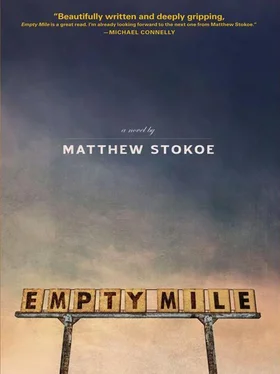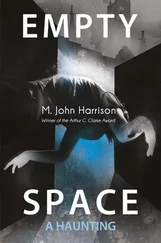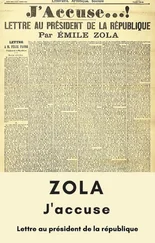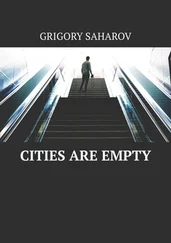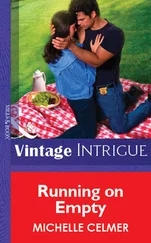Matthew Stokoe - Empty Mile
Здесь есть возможность читать онлайн «Matthew Stokoe - Empty Mile» весь текст электронной книги совершенно бесплатно (целиком полную версию без сокращений). В некоторых случаях можно слушать аудио, скачать через торрент в формате fb2 и присутствует краткое содержание. Жанр: Триллер, на английском языке. Описание произведения, (предисловие) а так же отзывы посетителей доступны на портале библиотеки ЛибКат.
- Название:Empty Mile
- Автор:
- Жанр:
- Год:неизвестен
- ISBN:нет данных
- Рейтинг книги:5 / 5. Голосов: 1
-
Избранное:Добавить в избранное
- Отзывы:
-
Ваша оценка:
- 100
- 1
- 2
- 3
- 4
- 5
Empty Mile: краткое содержание, описание и аннотация
Предлагаем к чтению аннотацию, описание, краткое содержание или предисловие (зависит от того, что написал сам автор книги «Empty Mile»). Если вы не нашли необходимую информацию о книге — напишите в комментариях, мы постараемся отыскать её.
Empty Mile — читать онлайн бесплатно полную книгу (весь текст) целиком
Ниже представлен текст книги, разбитый по страницам. Система сохранения места последней прочитанной страницы, позволяет с удобством читать онлайн бесплатно книгу «Empty Mile», без необходимости каждый раз заново искать на чём Вы остановились. Поставьте закладку, и сможете в любой момент перейти на страницу, на которой закончили чтение.
Интервал:
Закладка:
We had a backhoe delivered and Gareth, who had used one before to dig drainage ditches around his cabins, trundled it through a space in the trees and parked it in the center of the cleared ground. It seemed as good a place as any to begin the process of making ourselves rich.
Throughout these preparations Gareth left Marla alone, coming to Empty Mile only to check on the progress of the contractors, entering our cabin only when she was out at work. The first day we started mining, though, this hands-off approach changed.
He arrived shortly after the sun had cleared the surrounding hills and the dew in the meadow was beginning to turn to a thin low-clinging mist. Marla had not yet left for the day so when I heard Gareth’s Jeep pull up I went outside with Stan and our equipment in the hope that we’d be able to head him off and go straight down to the river.
But Gareth had other ideas. He wanted to have breakfast with us. When I told him it was out of the question he smiled at me and mimed swinging a piece of pipe. There was nothing I could do. We went back into the cabin and sat around the table. Stan ate a second bowl of cereal. Gareth drank coffee and ate toast with exaggerated relish.
As Marla moved from one part of the cabin to another in her preparations for work he followed her closely with his eyes, trying to engage her in conversation whenever he could. She refused to answer him and did her best to pretend he wasn’t there, but I could tell by the tight lines of her face and the high color in her cheeks that it was a struggle for her. She left without eating anything or saying goodbye. As she went through the front door I saw something in Gareth’s eyes. It was only there a moment, but I caught it nevertheless-a wounded tenderness, a longing for something that had been lost forever.
A little while later Stan, Gareth, and I walked down the meadow and through the screen of trees to where the backhoe waited, cold and dewy from its night outdoors. Gareth slapped the engine cowling then put his hands on his hips and turned to us like we were all part of a gang.
“This is it, guys. Let’s make it happen.”
Our plan was to use the backhoe to clear the three or four feet of soil that had built up over the old riverbed and then to excavate the material beneath it. We had two sluices, one from my father’s cache of equipment, one supplied by Gareth, and these were to be our primary means of processing the gold-bearing sand and gravel.
A sluice is basically a long rectangular box open at both ends. On its floor, running horizontally across it, are a series of inch-high bars called riffles. The sluice is placed deep enough at the edge of a river so that the base of it is submerged but its walls rise a couple of inches above the water. Dirt is fed into the upstream end and the current of the water washes it along the length of the sluice. As it passes from one end to the other, the heavier material settles to the bottom of the box where it is caught by the riffles, while the mud and sand are washed out of the other end and into the river. Every so often the sluice is taken out of the water and whatever has collected against the riffles is knocked off into a bucket. This material is then further refined by panning. The result is concentrates-the same mixture of black sand and grains of gold we had refined by mercury amalgamation in Gareth’s barn.
Running a sluice requires a certain amount of skill and a lot of attention. Dirt has to be fed in at just the right rate or the sluice becomes overloaded and stones and other larger pieces of debris have to be constantly picked out by hand. But the amount of dirt that can be processed is exponentially higher than by using a pan alone, and if there is more than one person operating the sluice-one to feed it and one to pick out debris-the process goes even faster.
Because of his experience, Gareth was going to run the backhoe and build up a stock of riverbed material while Stan and I concentrated on the sluicing. That first morning, though, Gareth was too anxious to see what results we’d get to pile up more than a couple of hundred pounds of gravel and sand on the riverbank before stopping and joining us at the sluices.
We worked without speaking much. Carrying dirt in large plastic buckets, using shovels to sift it into the sluices, watching carefully as the water turned muddy, letting it clear again so we could see the black sand building against the riffles, moving the sluice a little side to side to let the light catch flecks of gold, reaching beneath the water to touch them with a fingertip…
Toward the end of the afternoon, while it was still fully light, we put the concentrates we’d collected in a plastic container. For a while the three of us just stood around and looked at it, ticking off in our minds all the future purchases this grubby metallic sand represented. Then we carried it up the meadow and put it in the shed at the back of the cabin. Our first day was over.
Stan went off to see Rosie. Gareth climbed into his Jeep and spoke to me through the window before he drove away.
“Some things can make everything else all right, just wipe the slate clean, don’t you think? All my shit with the road to the lake, all your shit with Tripp-doesn’t mean much now, huh?”
“Maybe we should split what we get each day. I don’t want you whining about how we’ve stolen some.”
“I trust you, Johnboy. Why wouldn’t I?” He winked and started his car. “See you tomorrow. I’m looking forward to breakfast. Maybe Marla will join us this time.”
Life quickly fell into a routine for Stan and Gareth and me-digging dirt and sluicing it, panning it down and then, every few days, amalgamating it with mercury. It was boring, tiring, backbreaking work that raised blisters on our hands and waterlogged our feet, but the richness of the dirt we were mining overrode our fatigue so that we worked in an avaricious trance where the filling of our bucket each day with black sand did not calm us with its promise of certain wealth but drove us on to want more and more and more. It was as though we became lost each morning and only regained ourselves when we threw down our tools at the end of the afternoon and walked away from the earth we had torn up and the river we had muddied.
Being wet every day forced Stan to change his approach to his moths. Instead of keeping them in a pouch around his neck, he put them, while he was working, in a large glass jar with a screw top which he stood on a nearby rock. The moths were always dying but Stan didn’t seem to care and called the jar his power generator and often during the day would touch it and hold it up and breathe in deeply with the glass pressed against his forehead.
All three of us stopped shaving, and as any clothes became soaked and filthy after five minutes of work, we tended, at the river, to wear the same things day after day without washing them. Sometimes Stan would bring his cassette player with him and run it on batteries and we would work to the sound of his mellow dance music, but mostly there was just the sound of water splashing, shovels going into dirt, and at intervals through the day the grind of the backhoe’s diesel engine.
Most days we took at least five ounces of gold from our hidden river. There were times when the content of the dirt dropped, when we found ourselves with nothing in our sluices after several hours work, but then all that was needed was for Gareth to direct his backhoe more to the left or the right and the gold always returned. Gradually, in this way, we were able to define the banks of the old river and get some idea of the distribution of gold along its length. And the better our picture of the river became, the more consistent our returns were.
We worked the first ten days straight through. After that we were exhausted and we took a day off to melt down the gold we had so far acquired in a crucible at Gareth’s place and take it to the assayer in Burton. We walked out of the Minco office with a check for a little more than forty thousand dollars. We’d sold them around fifty five ounces, but there was a commission fee plus our gold contained a small percentage of silver. This brought the per-ounce price down a little and also incurred a charge for the further refining that would be necessary to turn it into gold that fell into the standard purity range of between.995 and.999.
Читать дальшеИнтервал:
Закладка:
Похожие книги на «Empty Mile»
Представляем Вашему вниманию похожие книги на «Empty Mile» списком для выбора. Мы отобрали схожую по названию и смыслу литературу в надежде предоставить читателям больше вариантов отыскать новые, интересные, ещё непрочитанные произведения.
Обсуждение, отзывы о книге «Empty Mile» и просто собственные мнения читателей. Оставьте ваши комментарии, напишите, что Вы думаете о произведении, его смысле или главных героях. Укажите что конкретно понравилось, а что нет, и почему Вы так считаете.
